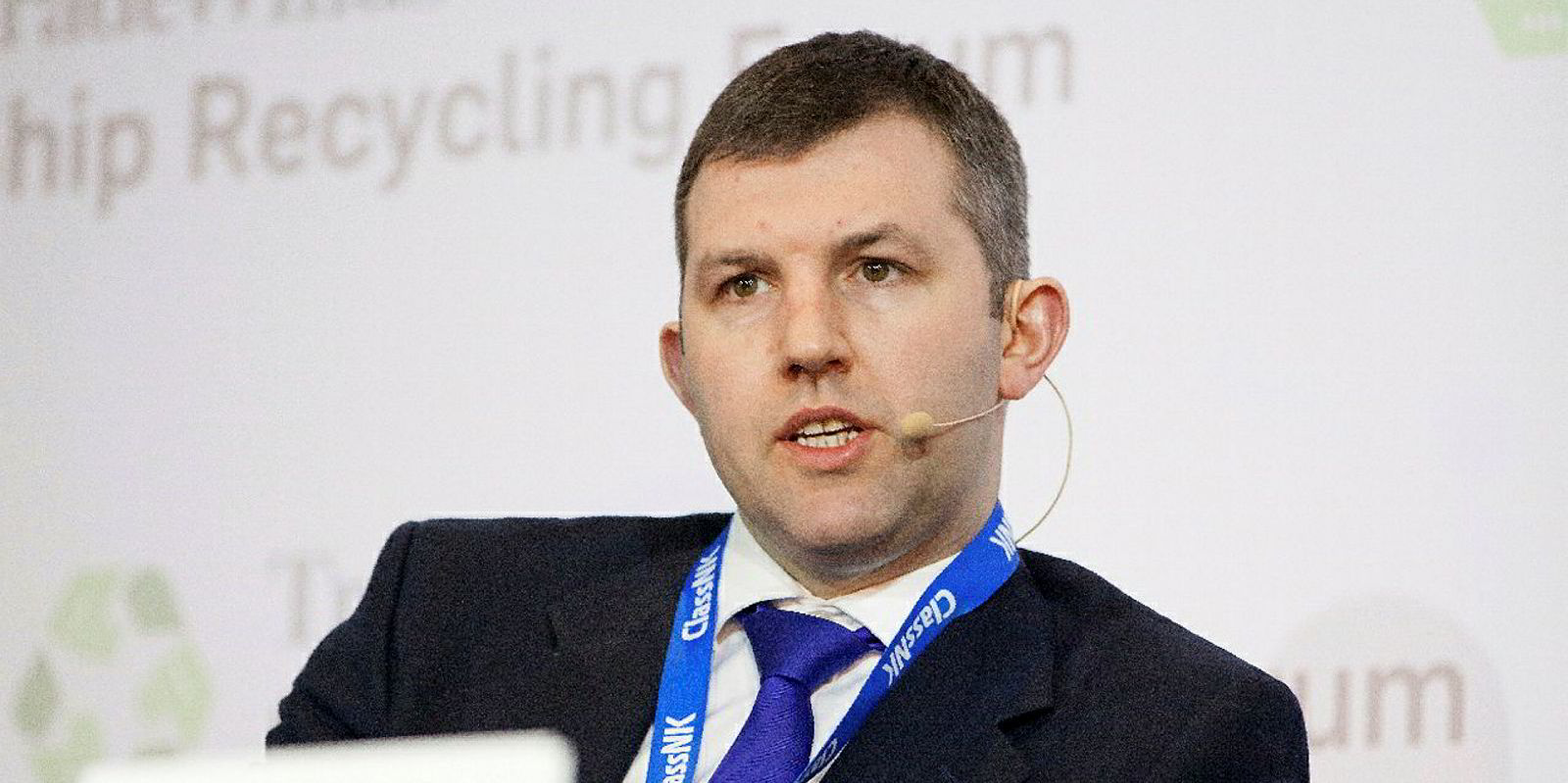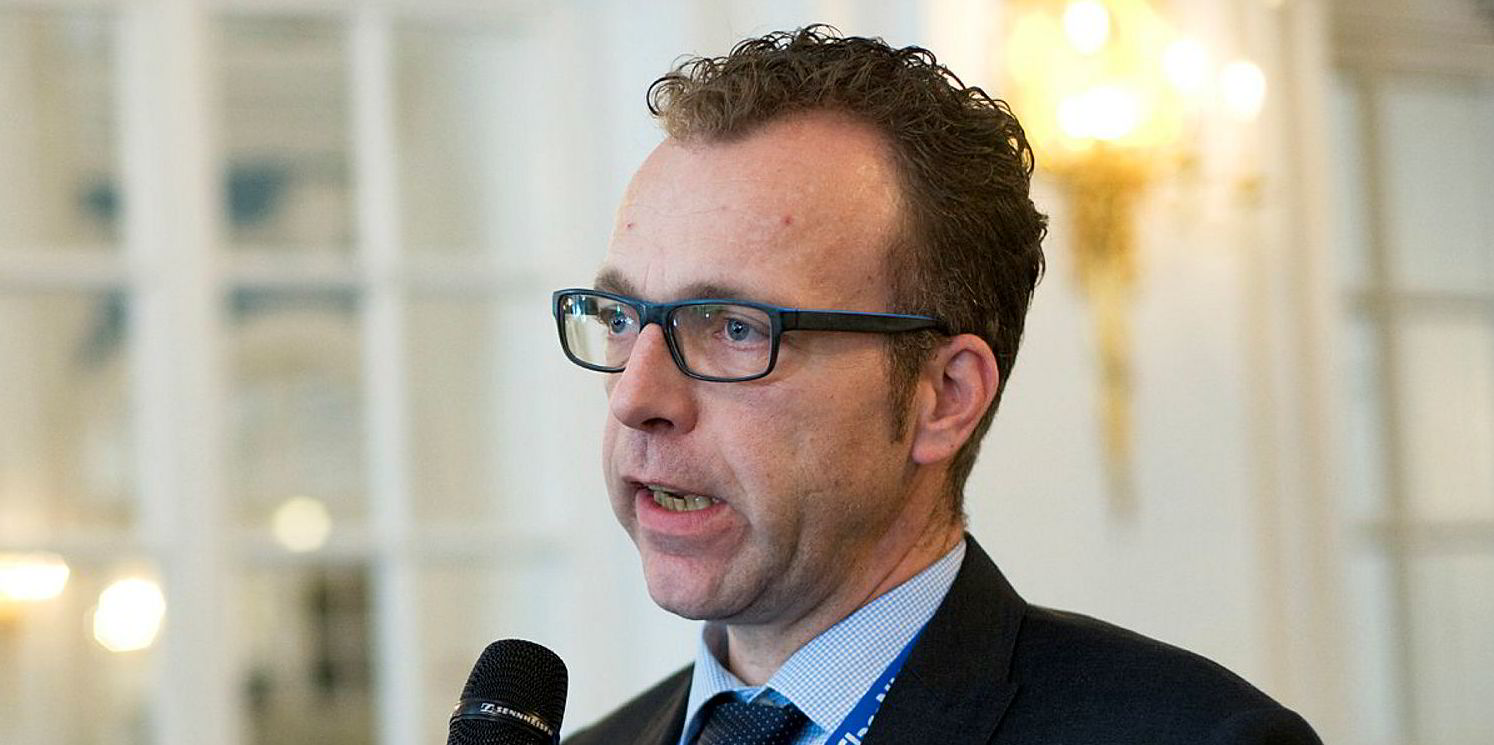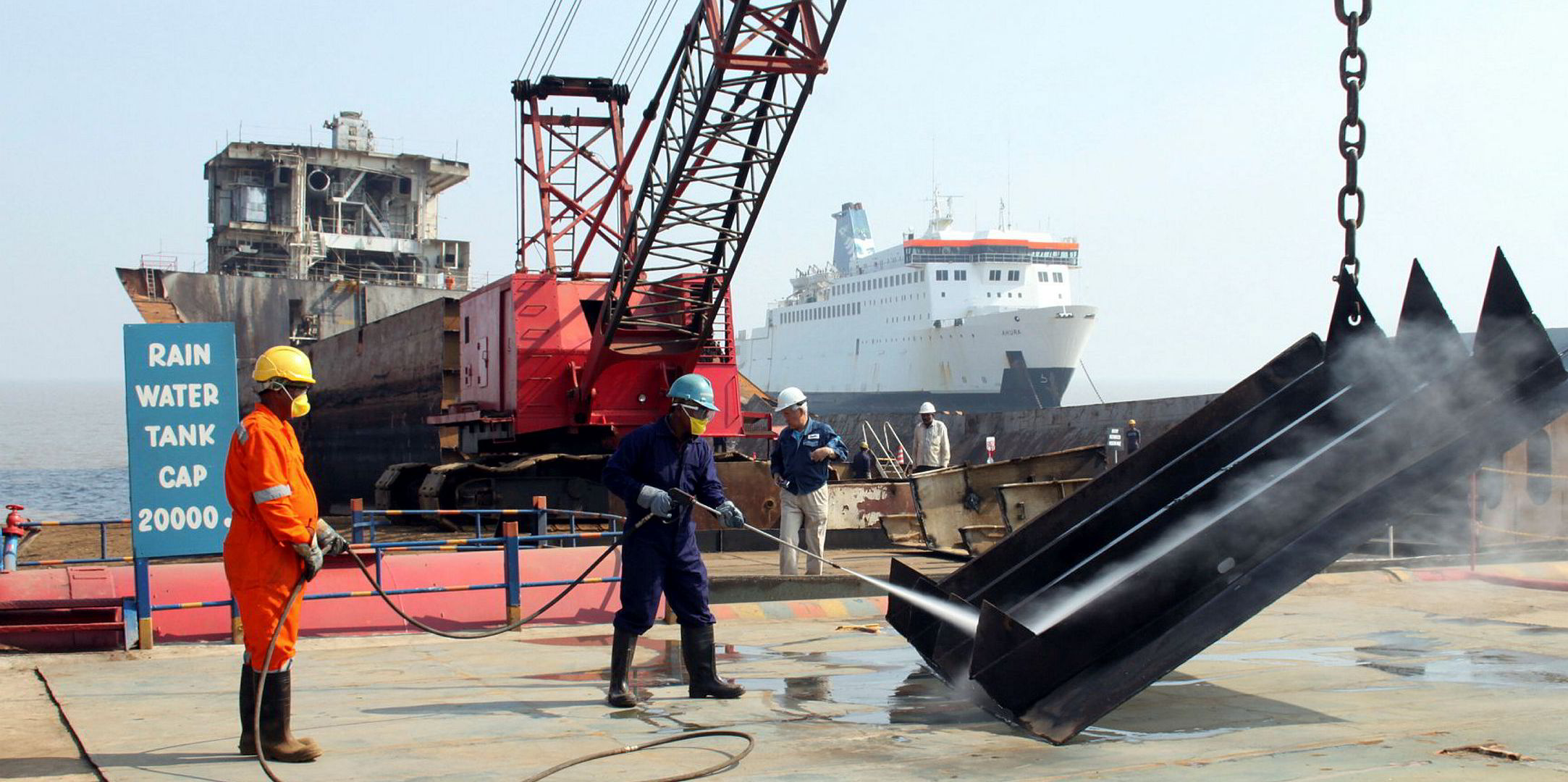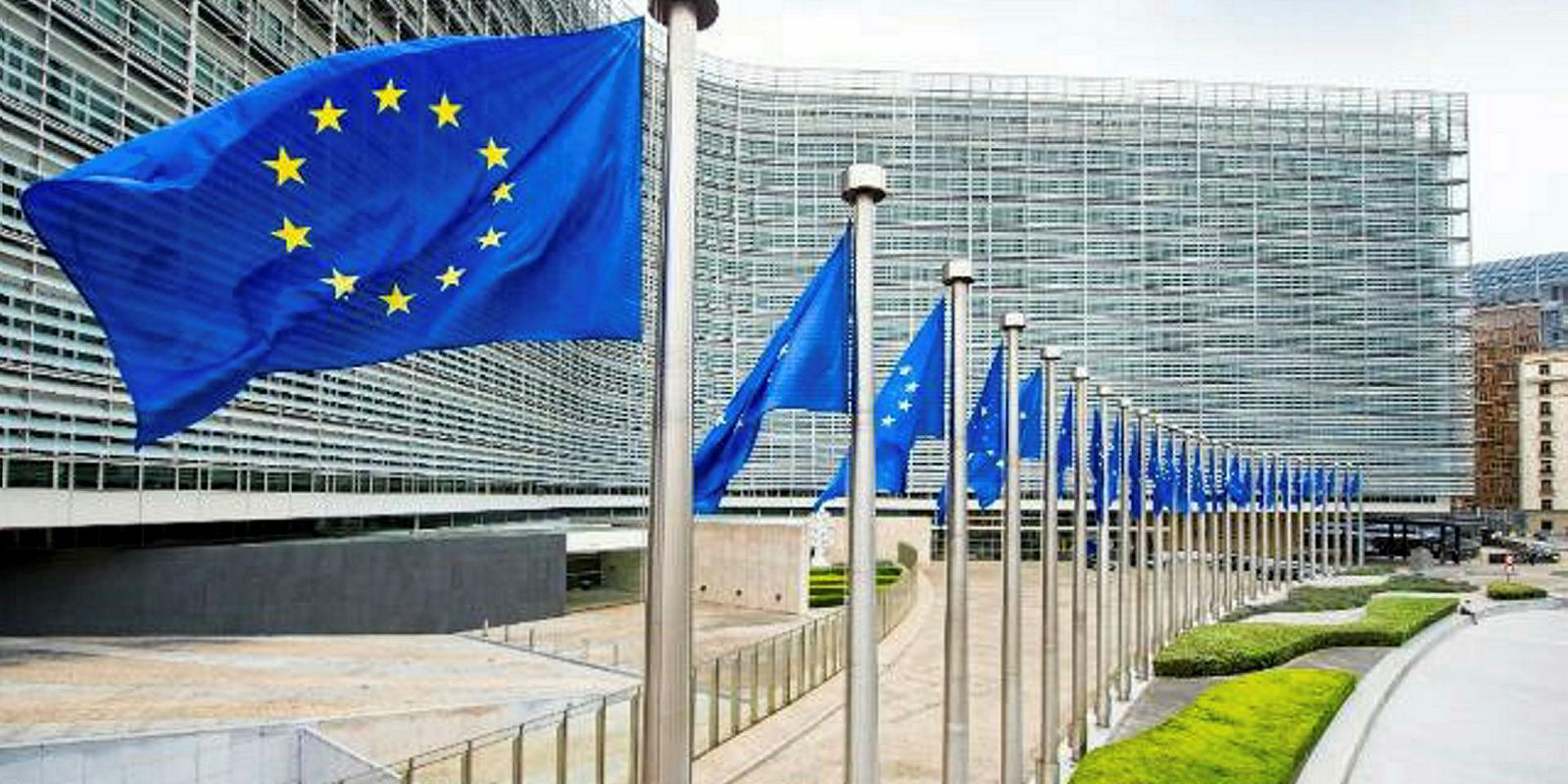Shiprecycling, long seen as the darker side of shipping, has in recent years emerged from the shadows.
Most shipowners for decades have given little thought when ordering newbuildings about the graveyard in which vessels will end their days.
Profits are (hopefully) already banked and residual value can come as a bonus of maybe several million dollars from selling to a cash buyer and onward sale to a recycler.
Unacceptable conditions
Few have paid little more than lip service to the fact that thousands of workers in Indian subcontinent yards have toiled for years in unacceptable conditions, when measured against Western standards.
But in the past 15 years or so, recycling has begun shaking off its twilight image and huge improvements have been made by some recyclers — something unlikely to have happened without the lobbying tenacity of environmental groups such as NGO Shipbreaking Platform.
Like them or loathe them, these pressure groups have accelerated the inevitable. Shiprecycling needed to be dragged into the 21st century.
New rules
A milestone was reached last week with implementation of the European Union’s Ship Recycling Regulation (SRR). In future, European-flag ships must be recycled only at approved yards.

John Stawpert of the International Chamber of Shipping tells TradeWinds that while questions remain about overall capacity and tonnage size that can be accommodated, no complaints have been received from owners about the 26-strong approved yards list.
This is somewhat surprising given concerns expressed earlier by the European Community Shipowners' Associations and Intercargo about adequacy of the list comprising 23 facilities in the EU, two in Turkey and one in the US.
Maybe this is simply the calm before the storm, as the list has still to be tested.
Owners have typically relegated recycling to the bottom of their in-trays, often demonstrating an amazing lack of knowledge of the subject
Lack of knowledge
A more likely explanation is that just as owners have typically relegated recycling to the bottom of their in-trays, often demonstrating an amazing lack of knowledge of the subject, there is an expectation that by the time scrapping is a real issue for them, enough Indian subcontinent recyclers will have been included.
But that is a risky assumption as the wheels in Brussels turn almost as slowly as those at the IMO, although more urgency appears to have been demonstrated since Gael de Rotalier was appointed as the European Commission’s new team leader for shiprecycling.
It is now 10 years since the EC presented an EU strategy for the safer dismantling of ships and more than two years since the first Indian yard, Priya Blue Industries, applied for SRR recognition.
Only at the end of September 2018 was it inspected, along with Shree Ram Vessel Scrap.
TradeWinds is told that the EC is in “post-inspection dialogue” with those two yards and in “close dialogue” with other subcontinent applicants.
Fresh questions
No doubt such a process throws up plenty of fresh questions that have to be answered but given the crucial role shipbreaking plays, especially given the likelihood that the IMO’s 2020 sulphur cap could prompt more scrapping, surely the process should have started much earlier.

Henning Gramann, chief executive of Hamburg-based Green Ship Recycling Services, fears that unless a “wake-up call” is received in Brussels, shipowners may see just one or two yards from the Indian subcontinent added to the approved list simply to show that the EC is not specifically anti-beaching. EC sources say they are not comparing one country with another but simply measuring how requirements of the SRR are being fulfilled.
The EC spent considerable effort scrutinising downstream waste management when it vetted locations in Turkey and it has to be seen whether the system in India of state agency landfill sites is broadly equivalent to international and EU standards, as required by Brussels, or is a deal-breaker.
'A unique opportunity'
Stawpert is just one of those who believe that if the approved list is to be meaningful longer term and a mechanism to encourage ratification of the IMO’s Hong Kong International Convention for the Safe and Environmentally Sound Recycling of Ships, then inclusion of Indian subcontinent yards is a necessity.
John Kornerup Bang, head of sustainability strategy at AP Moller-Maersk, summed up the sentiments of many when he told TradeWinds that the list was “a unique opportunity for Europe to play an important role stimulating the upgrading of yards in India and elsewhere”.
What the EU must now demonstrate is that politics and lobbying by environmental groups is not scuppering approval of Indian subcontinent yards if they genuinely meet the required safety and environmental standards, including downstream waste control.





